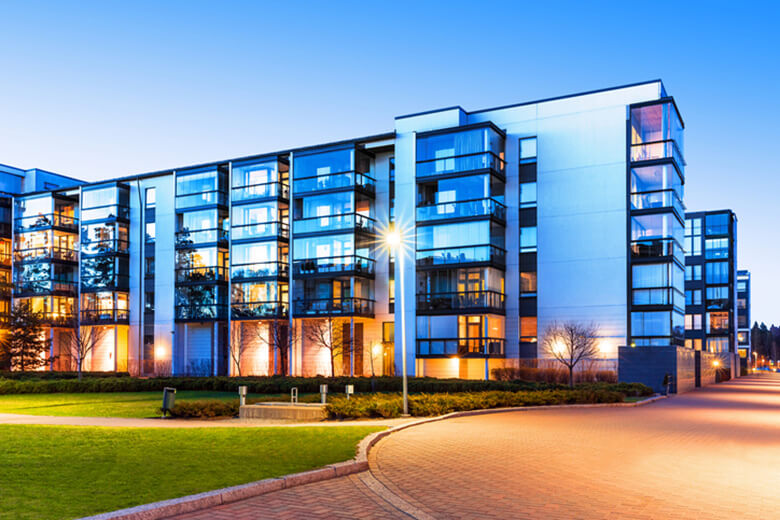Welcome to Ginger Energy Residents Area
- We’re appointed by Building Owners, Landlords, Managing Agents, RTM’s, RMC’s and Developers to produce and manage utility billing on their behalf.
- We can invoice for gas, electricity, water, heat (thermal) energy for your development.
- Our role is to calculate and produce invoices, manage payments, and provide customer service to residents who need our support.
- We’re not a Utility Supplier. If you receive invoices from us, its because your Utility Supplier has appointed us as their chosen Billing Agent.

Services
The development owner is often the utility supplier to your home. They are responsible for supplying a utility, or in some circumstances multiple utilities, to your home and choosing who provides the billing and customer service support on their behalf.
Ginger Energy has been chosen as your development’s Billing Agent and are responsible for:

Analysing the operating costs of running the utility network

Calculating the tariffs

Analysing your meter readings

Producing invoices

Producing Statements

Providing payments facilities

Providing customer support solutions

Report faulty equipment to contractors

Processing change of occupancy activity

Distributing government levies or incentives
There are some things we cannot help you with:
Outages. We are not your Utility Supplier, we cannot help if you lose supply, but we will help you report it.
HIU & Heat Meters. We are not a HIU or Metering company, so if your these are broken, we cannot fix it for you, although we will guide you to the appropriate contractor.
About us
We are a team of energy experts and enthusiasts, headquartered in leafy Edgbaston Birmingham, delivering excellence to our Clients and their residents by providing a variety of services including communal utility re-charging solutions.
Our Directors have all previously worked in listed companies, including licensed energy suppliers. Some, including the Finance Director, have served at PLC board level, and our policies and operational processes reflect the discipline and rigour of a listed company.
Our focus has always been to place ourselves as a trusted utility outsource partner. Integrity and transparency in all our dealings, both with clients and their residents, is at the heart of everything we do.
Since Ginger Energy was established in 2013, we have become one of the industry’s most respected energy consultancies. We invest in good technology and great people. Our commitment to best practice and compliance is evidenced by our membership of The Association for Decentralised Energy (ADE) and the Association of Residential Management Agencies.
We are registered with the Energy Ombudsman for our brokerage activities and are in an alliance of industry-leading organisations established to deliver the UK’s decarbonisation; Total Estate and Energy Asset Management www.theteeam.
Unfortunately, we cannot be a member of The Heat Trust because they do not currently accept Billing Agents as members, however we do our best to comply with their scheme rules.
Decentralised Energy
Decentralised energy is a term used to describe a range of different energy generation and distribution technologies that are designed to reduce the reliance on large, centralised power stations. Decentralised energy systems can be used to generate electricity, heat or both, and can be located in a variety of different settings, including homes, businesses and communities.
There are a number on different benefits associated with decentralised energy systems, including:
They can improve the reliability of the energy supply by providing a more distributed network of generation assets.
The can help to reduce greenhouse gas emissions by providing a more sustainable way to generate energy.

Decentralised energy is a key part of the UK government’s strategy to decarbonise the economy and achieve net zero emissions by 2050.
By investing in decentralised energy technologies, the UK government is helping to create a more sustainable, affordable and reliable energy system for the future.

To help reduce carbon emissions there are increasingly stringent environmental targets placed upon new developments through the Code for Sustainable Homes.
Developers mindful of their obligations have moved away from installing gas combination boilers, and now deploy new decentralised technologies such as Heat Networks.

Heat networks replace old technology and allows the Government to monitor our carbon footprint.
Ginger Energy are members of the Association of Decentralised Energy www.theade.co.uk
Private Wire Network Developments
Commercial buildings that are converted to residential homes are done so under permitted development and have greater flexibility through a simplified planning process.
Developers choose to keep the existing infrastructure in place, and install a private sub metering system to measure individual apartments consumption.
The original national grid, supply point remains in place and measure utilities into the the development, and the private wire system feeds from the main supply point and measures consumption as it us used by each home.
This is known as a private wire network. It is not the same as a heat network. A heat network delivers heat or thermal energy, used to heat water and provide heating (and sometimes cooling). A private wire network supply can deliver gas, electricity or water.
Communal and District Heating Developments
Communal heating and district heating, is a centralised heat source, often located in a plant room of a building, which delivers heat and hot water ( and sometimes cooling ) to its residents through a series of insulated pipes.
The technology is referred to as a heat network. It is part of the decentralised energy system. The networks can be feed by gas, heat pumps, combined heat and power, hydro or secondary heat captured and redistributed.
Communal heating refers to a heat network that typically supplies a single block and district is a larger heat network that supplies, multiple buildings.
Heat Networks
There are currently about 14k heat networks delivering supply to half a million customers in the UK. About 12k of these are the smaller communal schemes, serving multiple apartments, in one or two buildings, and the remaining 2k are larger district schemes delivering heat to several buildings be they residential, commercial, industrial or a combination of all.
It is predicted that 5 million homes (24% of residential heat demand), will have heat supplied by heat networks by 2050.
The most noticeable difference when operating a communal block which has a heat network is that residents will no longer receive a direct supply from the traditional retail utility companies such as Octopus, British Gas, EON. Instead, the building’s owner, supplies residents and will recover the costs of running the heat network.
In effect, building owners or their managers, take on the responsibility of onward charging and invoicing residents. You can find out more information about heat networks here
The most important thing to remember is they are charging for heating and hot water, not gas or electricity.
My Development
Enter your postcode here to access the specific information for your development.
Existing Customers
Existing customers: to access your account, please click the button below.
Login to My AccountRegister with Us
If you have yet to create an account with Ginger Energy, please click the button below to get started.
Register here